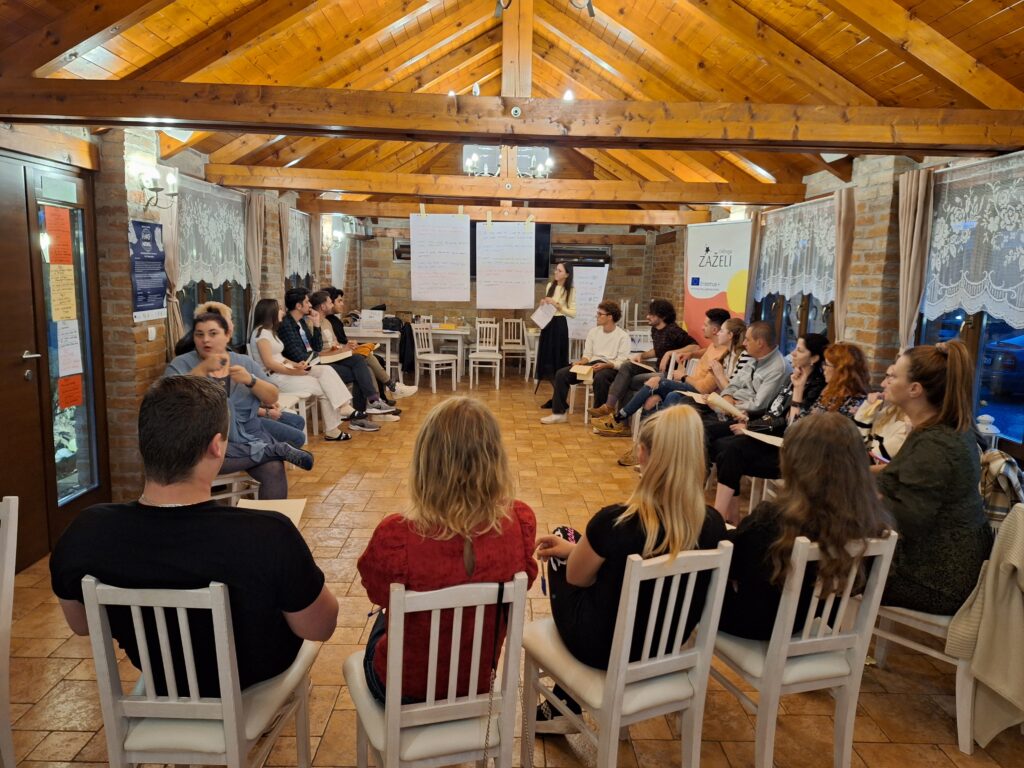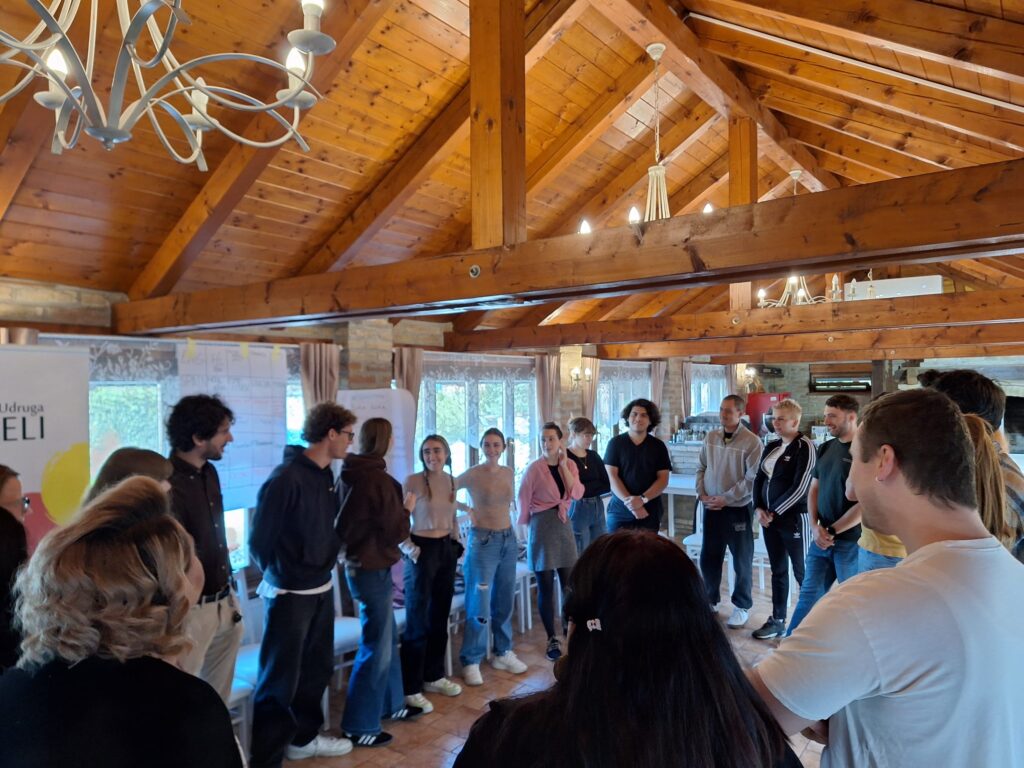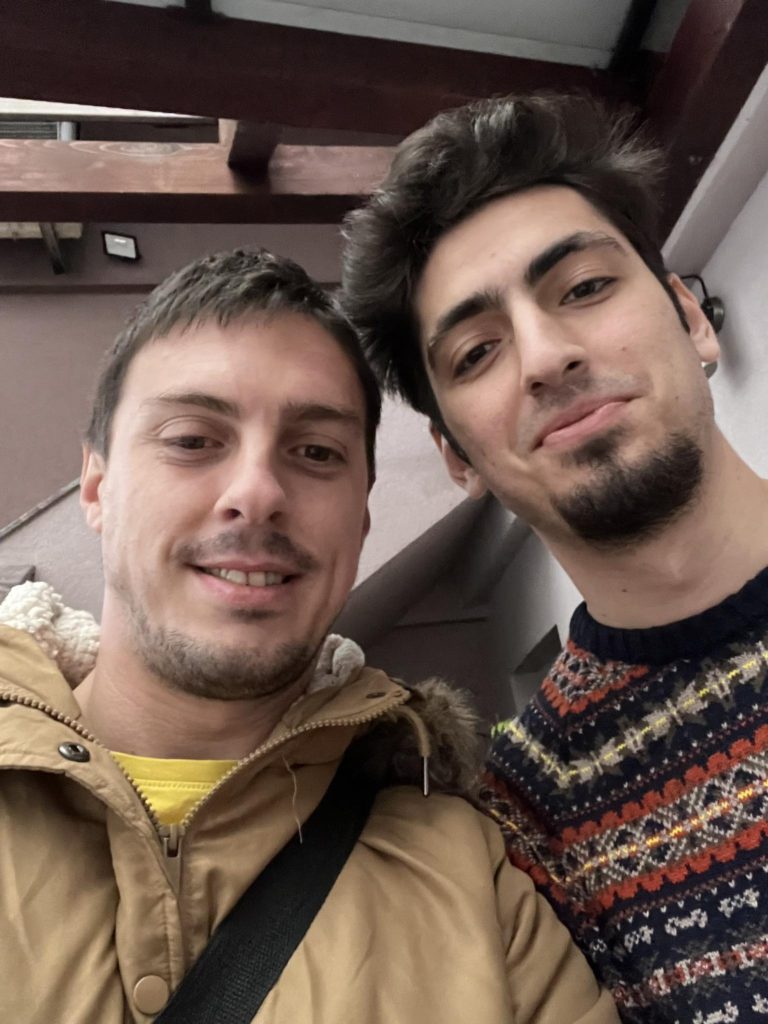Training course on topic of fake news
In partnership with 6 other organizations, Spin was part of a training for youth workers as part of the Erasmus+ project titled “Understanding Fake News: Developing Media Literacy In Our Communities.” The training took place in the village of Rešetari, near Nova Gradiška, from November 5th to November 13th, 2023. A total of 24 participants from 7 European countries attended the training, including Spain, Turkey, Bosnia and Herzegovina, Italy, Romania, Serbia, and Croatia.
The program encompassed over 20 non-formal methods familiarizing youth workers with tools they can apply in their work with young people. Some methods used are group work, discussions and debates, creative work, energizers and group-building activities that enhanced group cohesion and created a positive working atmosphere, deemed essential and exciting by the participants. Throughout the program, participants learned to define media and roles in the media and understand and accept how young people communicate with the media. To delve deeper into the training theme, participants engaged in role-playing, taking on the roles of journalists and creating materials for different media, further strengthening their skills in recognizing fake news. Through creating advertisements and developing a public campaign, participants became insiders in the media. Participants were also introduced to the phenomenon of Deepfake, and they were astonished by how easy it is today to deceive people using various free and readily available applications.


Fake news is a serious problem in today’s society, significantly affecting the mental health of young people who are exposed to it daily, as evidenced by the debate on the topic: “Fake news has a significant impact on young people,” where the affirmative group won by one point.
The objectives of the training were:
- Train 24 youth workers with the necessary knowledge and skills to work with young people and teach them to recognize, differentiate, and combat fake news.
- Provide youth workers access to at least 20 informal working methods to assist them in their work with young people.
- Create a platform with at least 20 resources, such as articles, videos, podcasts, and other materials, to help youth workers spread media literacy and awareness of fake news.
- Establish an informal network of 30 local organizations and institutions collaborating to share resources, knowledge, and experiences.
- Raise awareness of the need to work with young people to understand the effects of fake news and their potential to damage trust in public discourse.
Over the seven working days of this training, many of the set objectives were achieved. Youth workers strengthened their knowledge and skills for working with young people in the field of media literacy and fake news, raising their awareness of the importance of understanding fake news and reducing its impact on trust in public discourse. The 24 youth workers who participated in the training tested non-formal working methods that will help them in their future work with young people. All methods used in the training were sent to the participants for permanent use.
The web platform, created early in the project implementation, is regularly filled with resources, and it is expected to contain more than the planned number of informative and educational articles and materials by the end of the project. All stakeholders in this project committed to spreading the project’s results to create an informal network of local organizations and institutions collaborating to share resources, knowledge, and experience, thereby further contributing to preventing the spread of fake news and developing media literacy in their communities. Check the platforms on following link: https://fakenews-eu.com/

One of the participants from Spin, Bojan Trgic, shared his experiences:
He decided to attend this project because he had some experience in the field of media, but he also needed to meet other colleagues who deal with this and similar problems from neighboring countries, in order to see what their practices and experiences are. His general impressions are excellent considering that participants went through numerous examples of fake news, where most of the time they worked on practical examples and in groups.
The contacts that remained after the end of the program are also important to him. He learned to recognize certain video content with fake news content, as well as the fact that there are numerous forms of fake news that are increasingly present in our area and region. He would recommend everyone to get involved in the Erasmus + program, because it is the best form of communication between youth workers from different parts of the world. Likewise, the Erasmus + encourage all young people to get out of their comfort zone and learn something more, both about other peoples and countries and about themselves. In his opinion, these and similar programs have a significantly better effect than classical learning because they consist of practical work, where you learn from concrete examples and work on concrete tasks.
More info about the project can be found here.
This article reflects the views only of the author, and the Commission cannot be held responsible for any use which may be made of the information.
SPIN IN SHORT
Our goal is to contribute to the development of a society with positive values, a society that is recognising the importance of critical thinking, healthy lifestyles and providing equal opportunities for all. Spin is dedicated to creating and providing equal opportunities for all.
LET’S CREATE TOGETHER
Have an idea that you want to turn into a project, have project you need help to implement, want to develop an online course?
Contact SPIN!
© Spin 2023 | Design by AMDesign